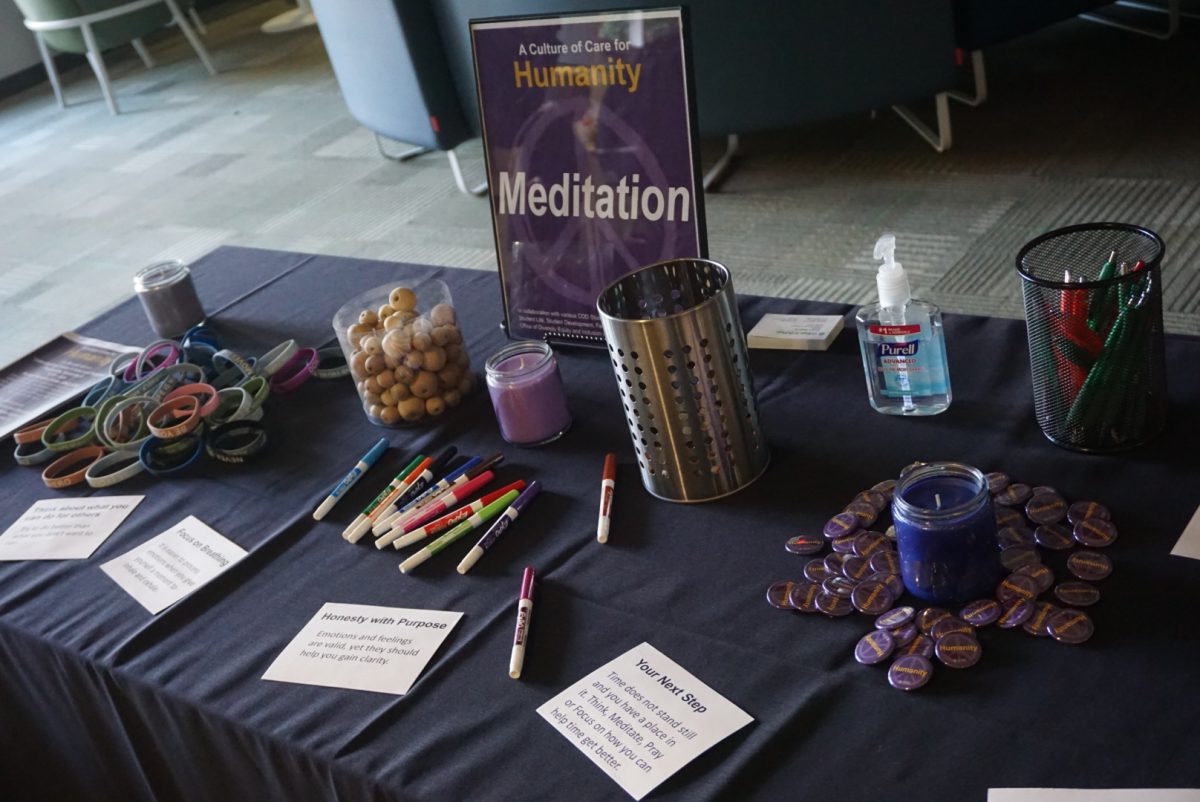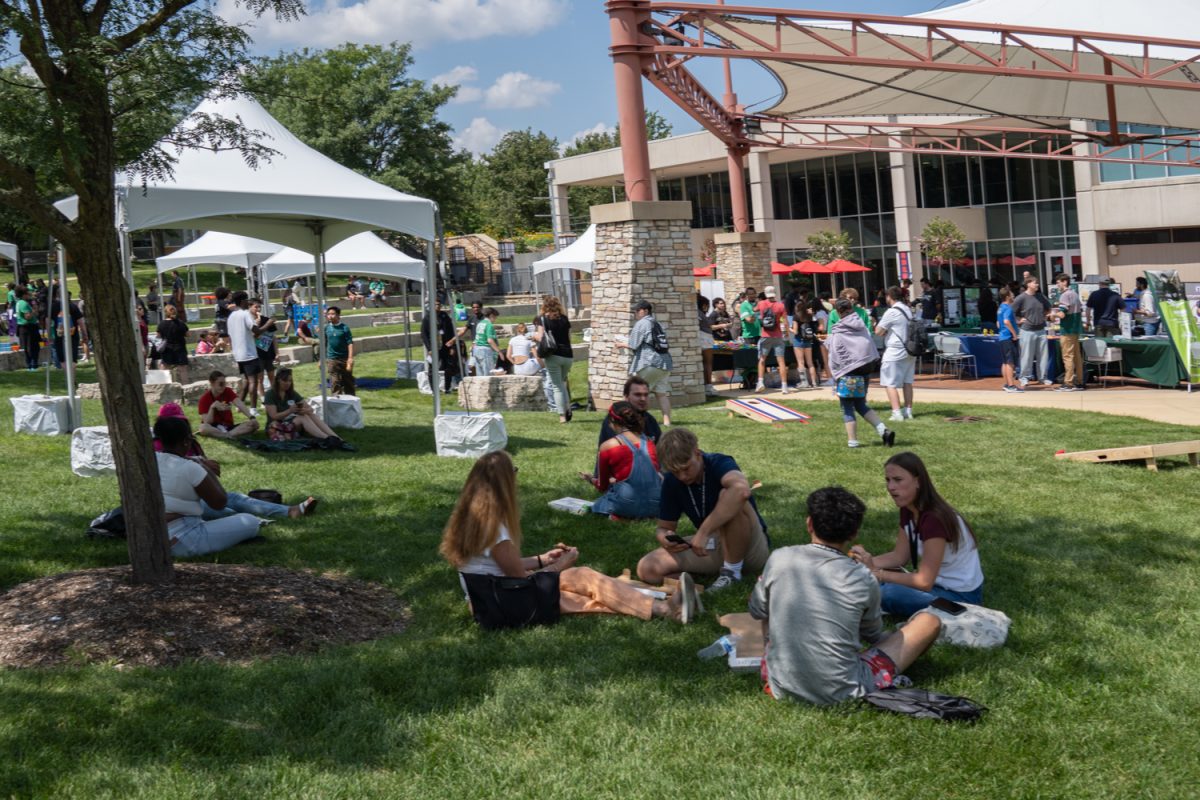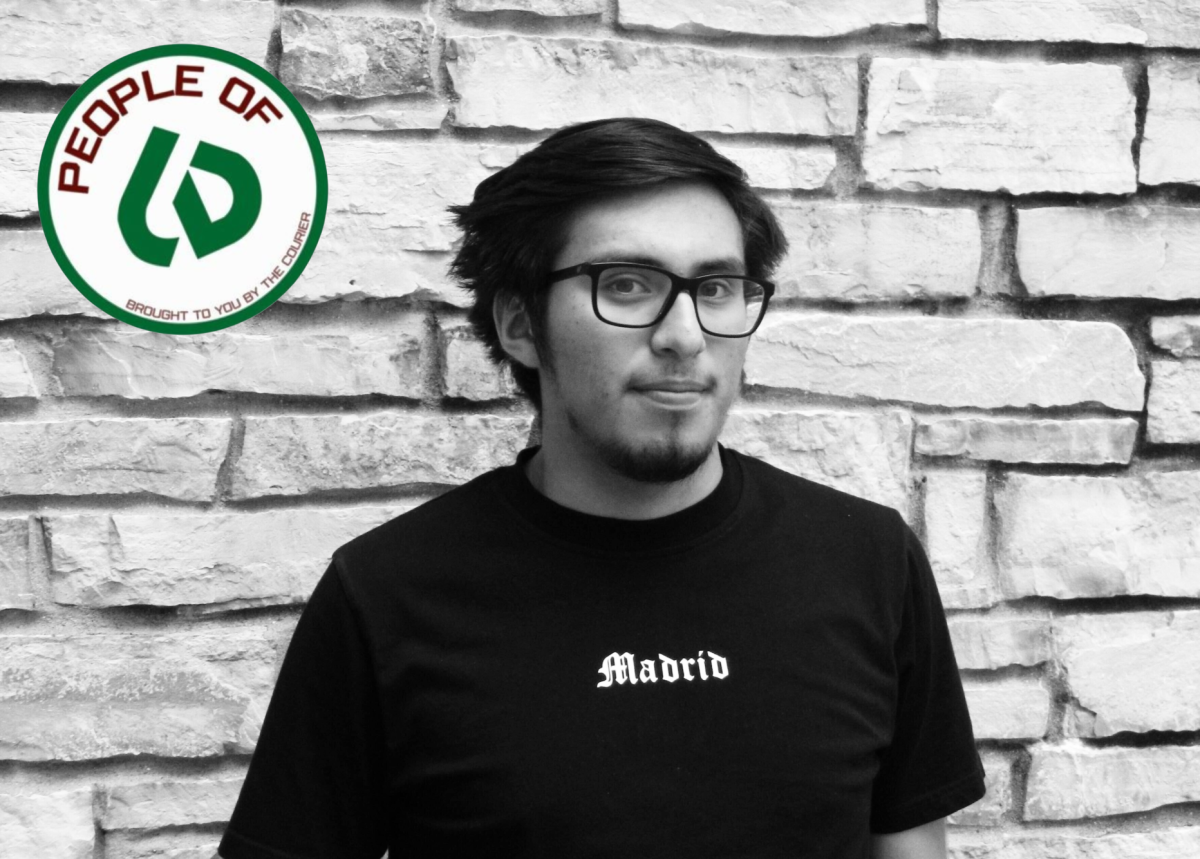Editor’s Note: This piece uses an anonymous source under the name Ester Levi. The reason the source is anonymous is for the protection of the source’s well-being from personal attacks. The source’s identity is known to both the writer and the editor.
The war in Gaza between Israel and Palestine is fueling hate crimes against Arab and Jewish people across the United States.
According to the Council on American-Islamic Relations, reports of bias against Muslims nationally have increased 182% from Oct. 7 to Oct. 24 of this year. Similarly, between Oct. 6 and Oct. 20, the Anti-Defamation League (ADL) reports that antisemitic incidents have risen by 388% in the United States.
In Illinois, the Oct. 14 stabbing of six-year-old Palestinian Wadea Al-Fayoume was officially classified as a hate crime based on anti-Muslim insults the perpetrator said during the murder. On Oct. 31, a Cornell University student threatened to open fire on Jewish students on campus, which the FBI is investigating as an antisemitic hate crime.
College of DuPage student Misbah Kaludi senses rising tensions aimed at groups she identifies with, which is causing her to feel uncertain about her safety and well-being.
“The hate crimes and discrimination that has happened in this country has affected my thoughts and lifestyle, because simply being Muslim and a hijabi, you feel threatened and scared,” she explained. “You never know what’s about to happen. There are so many hate crimes going on, and we keep hearing in the news all around us [about] people hating on Muslims and hijabis.”
Ester Levi, a College of DuPage student of Jewish heritage, shares similar sentiments.
“The conflict has affected me very deeply,” she remarked. “I have friends that have died in the Oct. 7 massacre, and it has very negatively impacted my health. I see Jewish people all across the world once again being persecuted for their identity. I no longer feel safe out in public or even on campus because of the hate crimes that have been happening.”
David Swope, the manager for the Center for Student Diversity, Equity and Inclusion at College of DuPage, said college staff are constantly working to create an environment of cooperation and understanding on campus.
“Our students want to know that at least in this space [at COD], we’re doing the best we can to make sure that we’re responding to their comfort and well-being as much as possible,” he said. “When you have intolerance, you will have spaces that create discomfort. We do have students that are sensing that because they have families there. They have relationships there. I know people that live in those regions personally, and I’m a Black man, so it impacts me in terms of what I know of those people. And what I would want for them is that they all would be safe. But then you see the kind of response to what other people are doing that can sometimes be a little intimidating.”
Ahmed Rehab, a member of the Council On American-Islamic Relations in Chicago, delivered a speech at the organization’s 20th annual banquet on Nov. 1. He emphasized that widespread media bias against Muslims in particular has turned numerous Americans against Muslims. He said free speech in support of Palestinian safety is unjustly labeled as hate speech.
“Every time Palestinian life and livelihood is discussed, just standing up for human rights and standing up for life, because someone is Muslim or someone supports life for Palestine, it’s [deemed] terrorism,” he stated. “As a Muslim, I stand against the death, the targeting of civilians of any background, religion, ethnicity, or nationality, including the ones in Israel. I don’t say this because it’s the right thing to say, I don’t say this to just go around the conversation, these are our religious values, these are our genuinely held religious beliefs.”
Several community organizations are working to reduce various hate crimes. The Muslim Civic Coalition is currently working with Illinois state representatives to pass the “Wadea Act.” It will address hate crimes that result from bias and misinformation that dehumanizes minority groups, including Muslims, Palestinians and Jewish people. Similarly, the Justice For All organization created a volunteer-based Media Watch initiative to monitor fair reporting in large news outlets.
On Nov. 1, President Joe Biden and VP Kamala Harris announced their administration is working on a “U.S. National Strategy to Counter Islamophobia.” In Biden’s words, “There is no place for hate in America.”
Kaludi agrees that unchecked media bias and censorship against Muslims and Arabs are evident through social media algorithms. She said social media serves as a significant catalyst for increased awareness and clarified understanding of the Israel-Palestine situation, particularly through the spread of solid photo and video evidence.
“Times like this are when I’m very thankful for social media because anyone can have the platform to post,” she pointed out. “I’ve seen so many people posting about Palestine, and it makes me really happy because in the media, this is not possible. Everything gets shadow-banned, everything gets covered up [by biased media]. So this is our way to raise our voices. If we post something regular on our story, it will get a lot more views than the stuff that is Palestine-related. And that’s because [major platforms] are trying to censor [content humanizing Palestineans].”
Swope agreed that a significant contributor to rising hate crimes and incidents of intolerance is people acting on strong emotions based on the misinformation they consume, rather than acting upon rationality.
“The majority of what people do is not based on facts. It’s based on emotion,” he stated. “We have to be careful not to just react solely based on emotion. Can you imagine if everybody reacted based on how they felt all the time? We’d have anarchy.”
Swope urges people—especially activists and those who feel strongly about international causes—to consult credible sources to derive information.
“The one thing that I always encourage students to do is to get literature-related resources,” he remarked. “The beautiful thing about books, whether you agree with them or not, all of them have references. All of them. You go to the back [of a book], you can see where they get the information.”
Swope also encourages COD students to hold meaningful, constructive conversations with one another while remaining open-minded.
“Talk to one another a little bit more, and don’t be so quick to judge people based on what you think you know,” he said.
During the Concern for Humanity Vigil at COD on Nov. 2, Swope observed the importance of togetherness to foster inclusive and peaceful environments.
“When we had the vigil yesterday, all kinds of people came through,” he recalled. “All perspectives, all backgrounds, you name them. Zero conflict. Zero confrontation. Healthy discussion. People listening. People shedding tears in a respectful way. People meditating.”
Kaludi declared that people can take action against all forms of injustice in various ways.
“There’s so much we can do,” she said. “We can pray, we can send donations, we can raise our voice. We can post as much as we can to raise awareness. And we need to educate those who are uneducated. We need to clear them of misconceptions; we need to wake them up into reality.”
Levi asks that people maintain integrity and courtesy during these difficult circumstances and not exclude any group or minority from their sense of justice.
“I wish that others would think and act with compassion, especially towards the Jewish communities,” she said. “We are being targeted by large groups, and instead of compassion, I see justification of racist hate crimes and the call for the complete genocide of my people. I hope people remember that this conflict is very personal and affects every single Jewish person.”
Swope quoted Civil Rights Movement leader the Rev. Martin Luther King, Jr. to express his principles of social change.
“Darkness cannot drive out darkness. Only light can do that. Hate cannot drive out hate. Only love can do that,” Swope reiterated.
All College of Dupage students are invited to attend the discussion panel “Understanding Events in Israel and Palestine” on Wednesday, Nov., 8 from 12:30 to 2 p.m. in Room SSC 3245, as well as the event “Navigating Emotions and Developing Resiliency during Global Upheaval” that will take place on Tuesday, Nov. 14, from 12:30 to 2 p.m. at Room SSC 1200.









